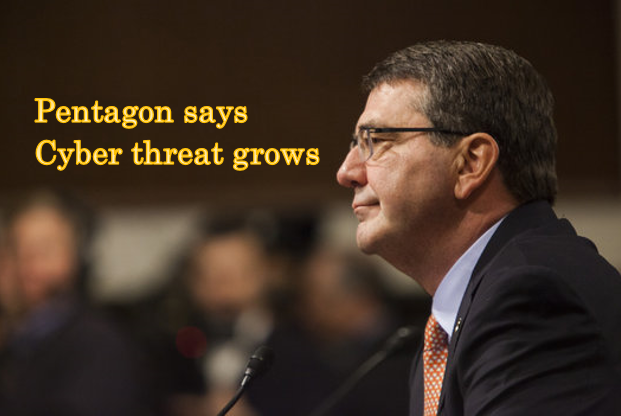
| Photo by Samuel Corum/Anadolu Agency/Getty Images |
This week, the United States disclosed a cyber intrustion by Russian hackers that happened this year. The hackers gained access to an unclassified U.S. military network.
The incident was revealed by United States Secretary of Defense Ashton Carter at an address at Stanford University. It was used as an example to highlight the overall growing cyber security threat present throughout the world.
Although the Russian hackers were able to gain access, Carter says a responding U.S. crack team hunted down the intruders, booted them off the network and throttled their chances of getting back in. Sensors were guarding the Pentagon's unclassified networks, which are what detected the intruders who had found an old, un-patched vulnerability.
In the process of thwarting the intruders, Carter implied the crack team was also able to learn valuable information about the hackers' methods.
In his remarks, Carter emphasized how the Pentagon was willing to use cyber weaponry to defend American networks, as outlined in their new cyber strategy. The document identifies Russia and China as the major threats, since both possess strong cyber capabilities.
"Russian actors are stealthy in their cyber tradecraft and their intentions are sometimes difficult to discern," the cyber strategy document elaborated.
Iran and North Korea, both teeming with hostile intent toward U.S. interests, reside in a tier below Russia and China in terms of cyber strength. Although, if what the FBI said is to be believed, we've already seen what North Korea is capable of in the Sony Pictures Entertainment breach. And they're no slouches.
Carter recognizes the document alone may not be enough to ensure American networks. He stresses that the U.S. military still needs to cooperate with Silicon Valley and tech giants.
"As tech companies see every day, the cyber threat against U.S. interests is increasing in severity and sophistication," he said. "While the North Korean cyberattack on Sony was the most destructive on a U.S. entity so far, this threat affects us all."
Would a combined military-tech corporation cyber security force be able to prevent another Sony-esque disaster? It's hard to say, but the Pentagon does seem right about one thing: worldwide, countries are boosting their cyber capabilities. If they're aiming at the U.S., the country has no time to slack.
Sources: http://www.reuters.com/article/2015/04/23/us-usa-pentagon-cyber-idUSKBN0NE29E20150423

